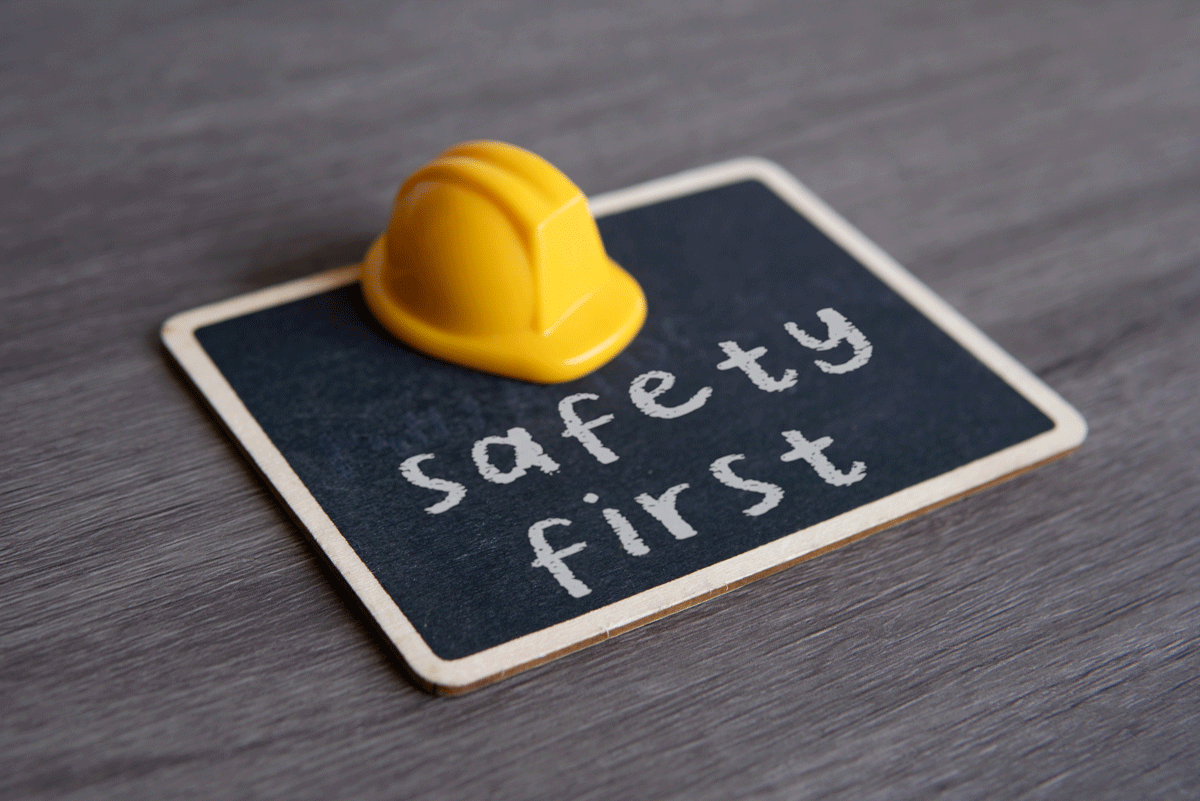
Blog

Top Safety Training Courses in Manitoba: What Every Worker Needs to Know
Introduction: Why Safety Training Matters in Manitoba
When it comes to protecting your team and staying compliant with provincial laws, safety training courses in Manitoba are more important than ever. Whether you are a small business owner or part of a large construction crew, the right training helps everyone go home safe at the end of the day. These courses are not just about checking boxes. They are about building confidence, preventing accidents, and creating a strong safety culture on every job site.
In this blog, we will walk you through the most recommended safety training programs available across Manitoba. You will learn why safety standards matter, what courses are best for your industry, and how to pick the right training for your team. We will also look at the difference between online and in-person options, what certifications are required, and how much you can expect to invest. If you want a clear, simple breakdown of your options without the confusion, you are in the right place. Let us help you create a safer and smarter workplace.
Understanding Workplace Safety Standards
Before choosing a safety training course, it is important to understand the basic safety standards that apply to workplaces in Manitoba. These rules are in place to protect workers from injury, illness, and unsafe conditions. They also help employers stay compliant with provincial laws. Following these standards is not only the right thing to do but also a smart business move that reduces liability and boosts team morale.
Manitoba’s safety regulations are guided by the Workplace Safety and Health Act. This law outlines what employers must do to keep their worksites safe. It includes responsibilities such as providing proper training, identifying hazards, and reporting incidents. Safety training courses are a key part of meeting these legal duties.
Every industry has its own risks, which means safety standards may vary from one job to another. That is why it is so important to choose training that fits the specific work your team does. Whether you are in construction, healthcare, agriculture, or manufacturing, knowing the rules is the first step to keeping everyone safe and well-prepared.
Top Safety Training Courses in Manitoba for 2025
With so many training options out there, it can be hard to know which ones are worth your time and money. In this section, we will highlight the most important courses offered across the province. These programs are trusted by employers and meet key safety standards for Manitoba workplaces.
Popular and Proven Programs
Manitoba offers a wide range of safety training courses to help workers stay protected and confident on the job. Some of the most trusted programs include First Aid and CPR, Fall Protection, WHMIS, and Confined Space Entry. These courses are widely recognized and often required across various industries.
Safety Training Courses in Manitoba for Every Workplace
No matter your field, there are safety training courses in Manitoba designed to meet your needs. From construction and oilfield work to healthcare and hospitality, these programs cover both general and specialized risks. Many are offered through certified providers like SAFE Work Manitoba and Red River College.
What to Expect from Each Course
Most training includes a mix of classroom learning and hands-on practice. Sessions are often one day long, with certificates provided upon completion. Some courses are also available online, making it easy to fit training into a busy schedule. Choosing the right course starts with understanding what your team needs and what your industry requires.
Industry-Specific Training Options
Not all jobs carry the same risks, so safety training should match the kind of work your team does. Manitoba offers a wide range of programs designed for specific industries, helping employers meet unique safety needs while following provincial rules.
Construction and Trades
In construction, fall protection, equipment operation, and hazard awareness are key. Many worksites require certification before workers can even step on-site. These courses are often updated to match changing building codes and safety standards.
Healthcare and Community Services
For those in hospitals, care homes, or community support roles, training focuses on patient handling, infection control, and emergency response. These programs help protect both workers and those they serve.
Agriculture and Manufacturing
Farmers and factory workers face risks like machinery accidents, chemical exposure, and repetitive injuries. Courses in equipment safety, chemical handling, and ergonomics are commonly recommended.
Office and Retail Settings
Even in lower-risk environments, training matters. Programs may include workplace harassment prevention, fire safety, and emergency planning.
Choosing industry-specific courses helps ensure that training is relevant, practical, and immediately useful on the job.

How to Choose the Right Course for Your Team
With so many options available, selecting the right safety training can feel overwhelming. The key is to match the course with your team’s daily tasks, risks, and learning preferences. Start by looking at the hazards your team faces. Are they working at heights, operating heavy machinery, or handling chemicals? Each risk comes with a training program designed to reduce it.
It also helps to consider the format. Some employees may benefit more from hands-on training, while others prefer the flexibility of online learning. Think about what works best for your team’s schedule and learning style.
When making your choice, remember The Importance of Safety Training in the Workplace. It is not just about following rules. It is about building a stronger team, creating a safer work environment, and showing that you care about your people. Choosing the right course is the first step in making safety part of your company culture.
If you are unsure, reach out to certified training providers. They can help you find the best fit for your workplace and your goals.
Online vs. In-Person Safety Training
When it comes to safety training, both online and in-person formats have their benefits. The best choice depends on your team’s needs, the type of training, and your work environment.
Online Training
Online courses are flexible and easy to access. They are great for teams with busy schedules or those working in remote areas. Many programs allow employees to learn at their own pace, and some even offer instant certification upon completion. Online training is ideal for topics like WHMIS, harassment prevention, and general safety awareness.
In-Person Training
In-person training gives employees hands-on experience. It is especially useful for high-risk tasks like fall protection, equipment operation, and first aid. These sessions often include live demonstrations, group discussions, and direct instructor feedback. This format can also boost engagement and help your team retain the information better.
In many cases, a blended approach works best. Use online courses for foundational knowledge and follow up with in-person sessions for more complex topics. Whichever you choose, make sure the training is up to date and approved by recognized safety organizations.
Certification, Compliance, and Legal Requirements
In Manitoba, safety training is not just a good idea, it is often required by law. Employers have a legal responsibility to provide proper training that meets provincial standards. This helps protect workers and ensures the company stays in compliance with the Workplace Safety and Health Act.
Certification proves that an employee has completed a course and understands the safety practices required for their role. Failing to meet these requirements can lead to fines, legal issues, or even job site shutdowns.
Here are a few key points to keep in mind:
- Certification must be current. Some courses, like First Aid, require renewal every few years.
- Training must match the job. It should cover the actual tasks and risks your team faces.
- Records must be kept. Always keep documentation of completed training and certificates.
- Courses should be from approved providers. Make sure the program meets Manitoba safety standards.
Following these rules is not just about staying legal. It shows your team that their safety is a top priority and helps create a safer, more responsible workplace.

Costs and Funding Support in Manitoba
One of the biggest questions employers have about safety training is how much it costs. The good news is that many safety training courses in Manitoba are affordable, and some are even free depending on the program and provider. Basic online courses may cost as little as $25, while more advanced or hands-on training could range from $100 to $300 per person.
While these costs can add up, it is important to see them as an investment in your team’s safety and your company’s future. A single accident can cost far more in downtime, medical expenses, or fines.
There are also funding programs available to help Manitoba businesses cover training costs. Some options include:
- Workplace Education Manitoba (WEM)
- SAFE Work Manitoba training grants
- Canada-Manitoba Job Grant
These programs are designed to support employers who want to upskill their teams and improve workplace safety. Be sure to check the eligibility and application deadlines.
With the right planning, you can provide top-quality training without straining your budget.
Conclusion: Investing in a Safer Workplace
Choosing the right safety training courses in Manitoba is one of the smartest steps you can take to protect your team and your business. From understanding workplace standards to picking industry-specific programs, every piece of training plays a role in creating a safer, more confident workforce.
We have covered the most important course options, how to choose what fits your needs, and the legal and financial aspects of training. Whether you go with online modules or in-person sessions, the goal remains the same: keeping your people safe and prepared every day.
Safety is not a one-time task. It is an ongoing commitment that builds trust, reduces risk, and supports a healthy work environment.
Ready to take the next step?
Let Safety Chicks help you find and schedule the right training for your team. Visit our Contact Page or give us a call today. We are here to make safety simple, effective, and stress-free.
FAQs
1. What are the most common safety training courses in Manitoba?
The most common courses include First Aid and CPR, WHMIS, Fall Protection, Confined Space Entry, and Workplace Harassment Prevention. These are essential for meeting legal requirements and ensuring worker safety.
2. Are online safety training courses accepted in Manitoba?
Yes, many online courses are accepted, especially for general awareness training. However, hands-on or high-risk training like fall protection may still require in-person sessions.
3. How often should safety training be renewed?
It depends on the course. For example, First Aid certification usually expires every three years, while WHMIS training should be refreshed whenever workplace conditions change.
4. Is funding available for safety training in Manitoba?
Yes, programs like the Canada-Manitoba Job Grant and SAFE Work Manitoba offer financial support to help businesses cover training costs.
About the Author
Safety Chicks is a women-led safety education team based in Manitoba, committed to creating safer workplaces across Canada. With years of hands-on experience in occupational health and safety, our mission is to make safety training accessible, engaging, and easy to understand. We specialize in delivering certified safety training courses in Manitoba for businesses of all sizes from construction crews to office teams. At Safety Chicks, we believe safety is more than a requirement, it’s a culture.
Learn more about our programs at safetychicks.ca or reach out to us directly for tailored training solutions.
Website: https://safetychicks.ca/
Phone: +12047277233
Email: safetychicks@mymts.net



